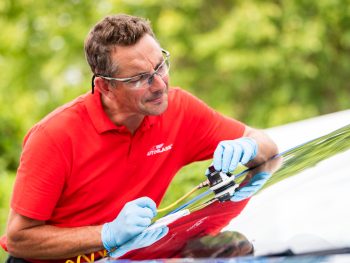Autoglass has reduced the incident rate in its van fleet by 40% over the last four years.

The reduction was achieved between 2018 and 2022 through the introduction of advanced drive assistance systems (ADAS) into its vehicles and the widespread use of telematics to track driver behaviour.
The vehicle glass repair and replacement business runs a fleet of more than 900 light commercial vehicles, used by technicians to collectively travel over a million miles per month.
Thanks to significant business investment in fleet upgrades, Autoglass has introduced more advanced safety features, such as autonomous emergency breaking and adaptive cruise control. Now 95% of commercial vehicles in its fleet feature some form of ADAS, providing further safety to Autoglass drivers and other road users.
It’s also using telematics to monitor driving behaviour, enabling the business to spot unsafe habits in drivers and provide targeted training where required. Autoglass also uses telematics to recognise and reward technicians who exhibit best driver performance to encourage positive behaviour.
The reduction in incidents and other initiatives contributed to Autoglass winning a British Safety Council International Safety Award in 2022.
The figures on incident rates were released in parent firm Belron UK’s Responsible Business Insights Report 2022, which outlines what Belron and Autoglass are doing to operate in a responsible manner and reduce their impact on the wider community and the planet.
Jo Fryer, people director, said: “At Autoglass we are in the business of safety, and so we ensure that reducing risk for our customers, colleagues and other road users is at the centre of every business decision we make. Over the last few years, we have invested significantly in the latest ADAS to ensure our drivers have access to the best technology to keep them safe on the roads. With new regulation coming next year that will require all cars sold to include some ADAS, we wanted to ensure we were ahead of the curve and at the forefront of technology in the industry.
“Safety is not a tick box exercise but something that we pay constant attention to. We are continually reviewing our systems and training to ensure we are fostering a safe working environment and reducing the vehicle incident rate still further.”

